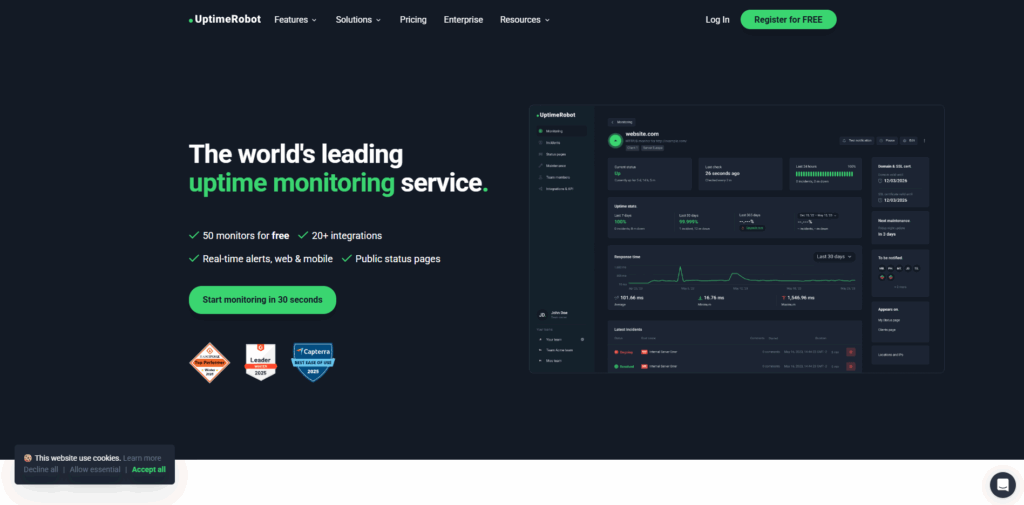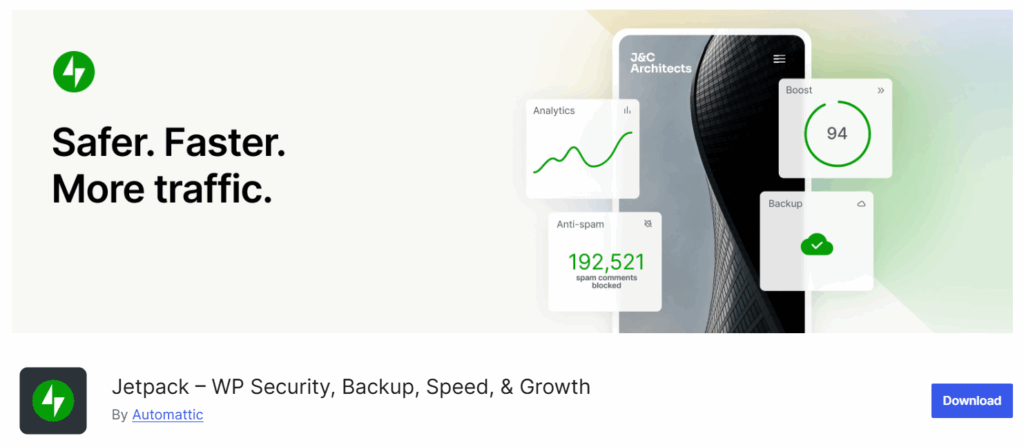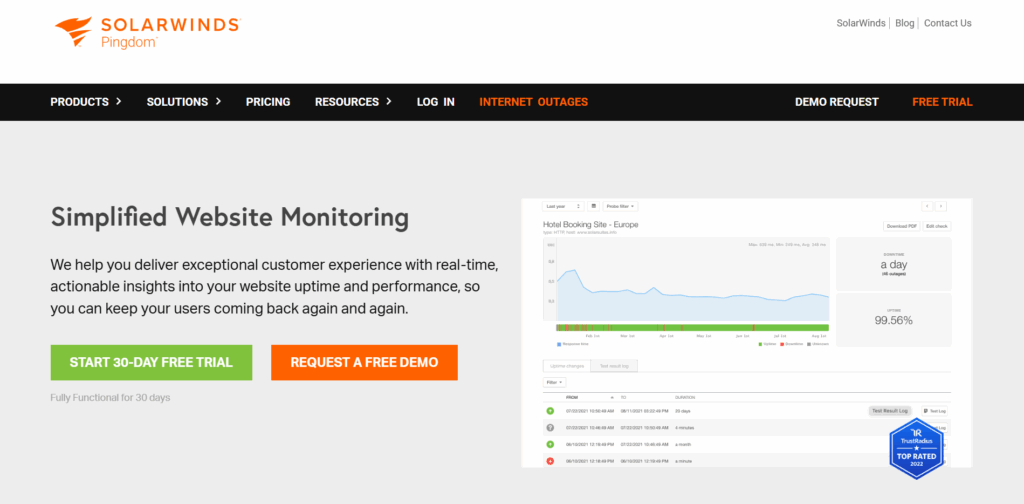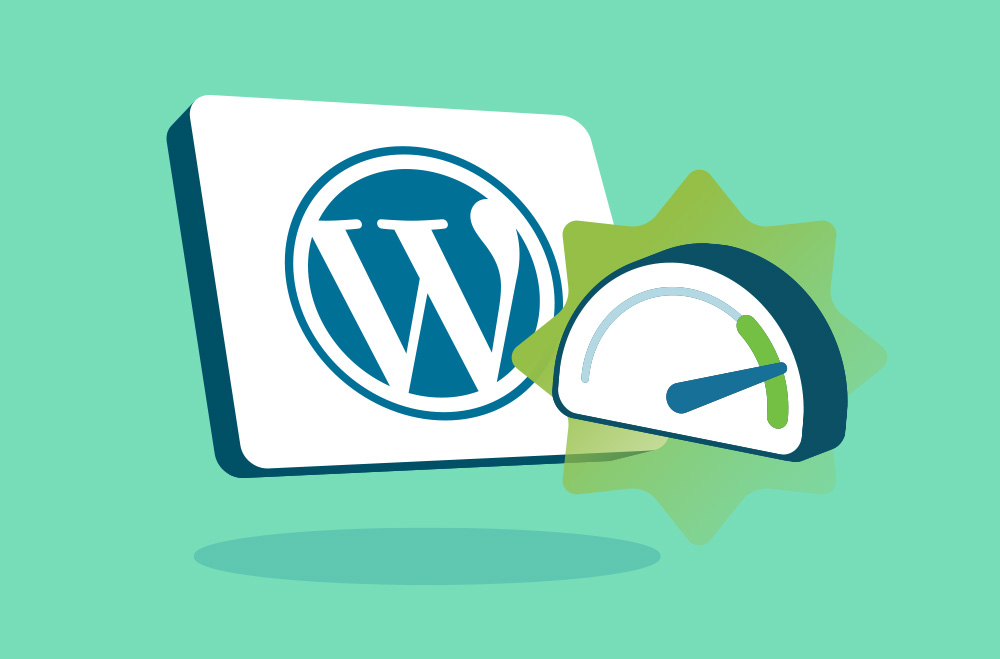
El tiempo de actividad del sitio web sirve como base para una presencia en línea exitosa. Cuando su sitio deja de estar disponible, puede generar pérdida de tráfico, ingresos y desafíos de credibilidad. Si bien la infraestructura de servidores sólida y el alojamiento de calidad proporcionan una base importante, a menudo funcionan mejor cuando se combinan con otros factores. La calidad del soporte técnico puede desempeñar un papel importante en el mantenimiento de una disponibilidad constante.
Los equipos de soporte profesional a menudo contribuyen significativamente al mantenimiento del tiempo de actividad. Desde la supervisión del estado del servidor hasta la respuesta a interrupciones o amenazas de seguridad, el soporte experimentado puede ayudar a abordar los problemas antes de que afecten a los visitantes. Al seleccionar un proveedor de alojamiento, considerar uno con soporte experto disponible las 24 horas del día puede ayudar a reducir la duración y la frecuencia de los incidentes de tiempo de inactividad.

Este gráfico ilustra varios factores que pueden influir en el tiempo de actividad del sitio web, calificados en una escala del 1 al 10 en función de su importancia potencial. La disponibilidad de soporte, la calidad del alojamiento web y los protocolos de seguridad aparecen en la parte superior, lo que sugiere que una infraestructura confiable y un soporte experto pueden ayudar a prevenir el tiempo de inactividad. Las herramientas de monitoreo del tiempo de actividad y el mantenimiento de rutina también muestran calificaciones altas, ya que pueden ayudar a identificar problemas de manera proactiva. La compatibilidad de complementos, temas y optimización de bases de datos también juegan un papel importante en el mantenimiento de la disponibilidad y el rendimiento del sitio.
El tiempo de actividad del sitio web representa cuándo su sitio web permanece activo, accesible y funcionando correctamente. En el entorno digital actual, incluso breves períodos de inactividad pueden resultar en la pérdida de clientes potenciales, carritos de compras abandonados y desafíos de reputación. Para las empresas que dependen de sus sitios web para ventas, servicio o comunicación, el tiempo de actividad a menudo se convierte en una prioridad para mantener la participación del cliente y las oportunidades de conversión.
Un alto tiempo de actividad refleja la estabilidad operativa y puede ayudar a generar confianza con los usuarios y los motores de búsqueda. Sin una disponibilidad constante, los sitios pueden correr el riesgo de ser percibidos como poco confiables, lo que puede afectar las clasificaciones de búsqueda y la confianza de la audiencia. Mantener el tiempo de actividad a menudo sirve como un objetivo técnico y una estrategia comercial que puede influir en los ingresos, la lealtad del cliente y el potencial de crecimiento.
Razones adicionales por las que el tiempo de actividad a menudo es importante:
El tiempo de actividad del sitio web generalmente depende de la confiabilidad técnica, la administración de recursos y la preparación de seguridad. Si bien muchos propietarios de sitios se enfocan principalmente en la calidad del servidor, el tiempo de actividad puede verse influenciado por una gama más amplia de variables. Todo, desde la selección del proveedor de alojamiento hasta la frecuencia de actualización del software, puede afectar el tiempo que su sitio web permanece en línea y funcional. Es por eso que muchos expertos recomiendan un enfoque de múltiples capas.
Algunos desafíos de tiempo de actividad, como fallas de hardware o ataques a gran escala, pueden estar fuera del control directo, pero una planificación cuidadosa puede evitar muchos problemas. El mantenimiento regular, la infraestructura confiable y el soporte técnico receptivo pueden ayudar a reducir el tiempo de inactividad no planificado. Identificar y abordar posibles puntos débiles a través del monitoreo, las medidas de seguridad y las actualizaciones puede contribuir al éxito del tiempo de actividad a largo plazo.
Factores comunes que pueden influir en el tiempo de actividad:
Los equipos de soporte profesional pueden servir como socios valiosos para mantener la disponibilidad del sitio web. Si bien la calidad del servidor y la infraestructura de alojamiento proporcionan la base, los equipos de soporte pueden ofrecer la supervisión humana y la experiencia técnica que pueden ayudar a mantener un tiempo de actividad óptimo. A menudo manejan la respuesta a incidentes en tiempo real, el mantenimiento de rutina y la optimización del rendimiento, lo que puede ayudar a garantizar que se aborden los problemas menores antes de que se conviertan en interrupciones importantes.
Más allá de la resolución de problemas, el soporte experimentado puede actuar como consultores, ofreciendo orientación sobre escalabilidad, compatibilidad de complementos y problemas de seguridad emergentes. Su participación puede ser particularmente valiosa durante emergencias y al planificar actualizaciones, migraciones y mejoras de rendimiento. Para las empresas donde el tiempo de inactividad afecta directamente los resultados, tener acceso a soporte experto puede ayudar a transformar posibles crisis en situaciones manejables.
Funciones comunes de los equipos de soporte profesional:
El monitoreo profesional del tiempo de actividad se extiende más allá de simplemente detectar cuándo su sitio web deja de estar disponible. Puede proporcionar información sobre el rendimiento, la disponibilidad y la velocidad de respuesta de su sitio, lo que ayuda a identificar problemas antes de que afecten a los usuarios. Con los sistemas de monitoreo implementados, obtiene visibilidad del estado del sistema y puede recibir alertas inmediatas, lo que puede permitir tiempos de respuesta más rápidos y períodos de interrupción más cortos.
Estas herramientas de monitoreo pueden ser más efectivas cuando se combinan con equipos de soporte calificados. Esta combinación puede ayudarlo a responder más rápidamente al tiempo que permite la planificación proactiva, la detección de tendencias y la optimización de la estrategia de tiempo de actividad. La combinación de alertas automatizadas y supervisión humana puede ayudar a los sitios a operar con mayor confiabilidad, lo que potencialmente brinda un acceso de usuario más consistente y una mejor protección para los flujos de ingresos.
Los beneficios potenciales pueden incluir:
Una estrategia eficaz de tiempo de actividad del sitio web generalmente implica una planificación proactiva, un monitoreo constante y procedimientos de respuesta preparados. Mantener la disponibilidad del sitio web durante todo el día a menudo requiere evaluar regularmente su infraestructura, sistemas de soporte y preparación para la respuesta a incidentes. Revisar periódicamente su enfoque puede ayudar a identificar áreas que pueden necesitar atención y podría ayudar a prevenir el tiempo de inactividad evitable.
Considere evaluar estas áreas en su estrategia de tiempo de actividad:
Elegir un socio de soporte de sitios web adecuado puede contribuir a lograr un tiempo de actividad constante y una estabilidad digital a largo plazo. Un proveedor de soporte confiable a menudo hace más que resolver problemas. Pueden monitorear, mantener y optimizar activamente su sitio. La asociación adecuada puede ayudar a brindar estabilidad, mejoras de rendimiento y confianza operativa a través de la resolución reactiva de problemas y la prevención proactiva de problemas.
Tenga en cuenta estas cualidades al evaluar los proveedores de soporte de sitios web:
La seguridad y el tiempo de actividad del sitio web están estrechamente interconectados. Los incidentes de seguridad como ataques DDoS, infecciones de malware e intentos de acceso no autorizado pueden hacer que los sitios sean inaccesibles para los visitantes y causar tiempo de inactividad. Estos problemas de seguridad pueden resultar en pérdida de tráfico, desafíos de reputación y, en casos graves, pérdida total del control del sitio. Los sitios sin las medidas de seguridad adecuadas pueden ser más vulnerables a las interrupciones del tiempo de actividad.
La incorporación de las mejores prácticas de seguridad en las rutinas de alojamiento y mantenimiento puede ayudar a respaldar un mejor rendimiento y menos interrupciones. Los análisis de seguridad regulares, las actualizaciones, los firewalls y los procedimientos de respuesta a incidentes pueden ayudar a identificar y abordar las amenazas antes de que se conviertan en interrupciones. Los equipos de soporte profesional a menudo aportan una valiosa experiencia en la aplicación de parches, la restauración de copias de seguridad limpias y la respuesta a incidentes de seguridad activos para ayudar a mantener la continuidad del negocio.
Medidas de seguridad que pueden respaldar el tiempo de actividad:
Las herramientas y complementos de monitoreo del tiempo de actividad pueden ayudar a garantizar que su sitio web siga siendo accesible y receptivo. Estas herramientas generalmente escanean su sitio desde varias ubicaciones globales y brindan alertas cuando se detecta tiempo de inactividad, lo que puede brindarle un aviso previo para abordar los problemas antes de que afecten a los usuarios. Estas herramientas pueden servir como un sistema de alerta temprana contra interrupciones costosas cuando se combinan con soporte técnico.
Las soluciones populares de monitoreo del tiempo de actividad incluyen:

UptimeRobot proporciona monitoreo del tiempo de actividad y el rendimiento para sitios web, servidores, API, certificados SSL, dominios y trabajos cron. Ofrece un nivel gratuito (hasta 50 monitores revisados cada 5 minutos) y planes pagos con funciones adicionales.

Jetpack, desarrollado por Automattic para WordPress, proporciona una solución integrada que incluye funciones de monitoreo del tiempo de actividad, seguridad, rendimiento y contenido. Está disponible en versiones gratuitas y premium.

ManageWP (ahora Orion) ofrece una plataforma basada en la web para administrar múltiples sitios de WordPress desde un panel centralizado. Puede ayudar a optimizar las tareas rutinarias como actualizaciones, copias de seguridad, seguridad y monitoreo del rendimiento.

Pingdom (de SolarWinds) proporciona servicios de monitoreo de sitios web que ofrecen información sobre el tiempo de actividad, el rendimiento y la experiencia del usuario. Está diseñado para empresas, desarrolladores y especialistas en marketing digital.

Super Monitoring es un complemento de WordPress que se integra con el servicio SuperMonitoring para proporcionar monitoreo del tiempo de actividad y el rendimiento desde el panel de control de WordPress. Ofrece comprobaciones de supervisión y puede alertar a los usuarios de problemas sin necesidad de una gestión de herramientas externas.
El mantenimiento regular del sitio web puede ser un enfoque eficaz para evitar tiempos de inactividad inesperados y respaldar un rendimiento constante. En lugar de actualizaciones ocasionales, el mantenimiento efectivo generalmente implica crear un cronograma sistemático para revisar, probar y optimizar los componentes del sitio web. Cuando se implementa de manera consistente, el mantenimiento puede ayudar a identificar vulnerabilidades y problemas de rendimiento antes de que se conviertan en interrupciones.
Priorizar el mantenimiento puede ayudar a reducir el riesgo de conflictos de complementos, problemas de rendimiento de la base de datos y violaciones de seguridad que podrían desconectar los sitios. El mantenimiento proactivo puede ayudar a garantizar que los sitios permanezcan seguros, estables y fáciles de usar, ya sea administrando un blog simple o una plataforma de comercio electrónico compleja. Este enfoque a menudo representa una inversión a largo plazo en la confiabilidad y resiliencia de su presencia en línea.
Tareas de mantenimiento que pueden ayudar a reducir el riesgo de tiempo de inactividad:
Mantener un tiempo de actividad constante a menudo requiere una atención continua a las prácticas operativas. Seguir las mejores prácticas establecidas puede ayudar a reducir el riesgo de tiempo de inactividad, respaldar la velocidad y confiabilidad del sitio y ayudar a generar confianza en el usuario. Estas prácticas pueden ayudar a los sitios web a funcionar bien en condiciones normales y seguir siendo resistentes cuando se enfrentan a desafíos inesperados.
Un enfoque integral de tiempo de actividad generalmente implica monitoreo, mantenimiento regular, documentación y planificación de respuesta. Este enfoque sistemático puede ayudar a identificar áreas que necesitan atención y proporcionar pasos prácticos para fortalecer la disponibilidad del sitio web. La coherencia con estas prácticas puede ayudar a prevenir problemas evitables y respaldar una presencia en línea confiable que se alinee con los objetivos comerciales.
Las prácticas adicionales que pueden respaldar el tiempo de actividad incluyen:
Equilibrar el costo y el valor en la gestión del tiempo de actividad implica tomar decisiones estratégicas que pueden ayudar a proteger su negocio en línea mientras administra los gastos de manera adecuada. Si bien las herramientas gratuitas pueden parecer atractivas inicialmente, los posibles costos de tiempo de inactividad, la pérdida de ventas, la reducción de la confianza y los impactos de SEO a veces pueden exceder la inversión en soporte e infraestructura de calidad. Invertir en soluciones confiables a menudo puede proporcionar rendimientos a través de una mayor estabilidad y confianza operativa.
En lugar de ver las soluciones de tiempo de actividad simplemente como gastos, puede ser útil considerarlas como medidas de protección que pueden ayudar a preservar los ingresos, la experiencia del usuario y la reputación de la marca. Incluso un breve tiempo de inactividad durante los períodos pico puede resultar en un impacto comercial medible. Las empresas pueden tomar decisiones más informadas al evaluar el costo potencial de las interrupciones en comparación con la inversión en protección proactiva.
Al evaluar el costo frente al valor, considere:
El tiempo de actividad del sitio web representa más que una métrica de rendimiento. A menudo es una base para la confianza, los ingresos y la satisfacción del usuario. Los sitios que experimentan tiempo de inactividad pueden correr el riesgo de perder visitantes, enfrentar desafíos de reputación y experimentar una visibilidad de búsqueda reducida. Mientras invierte en Hosting de calidad y una infraestructura sólida proporciona beneficios importantes, es posible que estas medidas por sí solas no protejan completamente contra todas las posibles interrupciones, incidentes de seguridad o problemas técnicos.
Los equipos de soporte profesional pueden aportar experiencia, conocimientos y monitoreo continuo a su estrategia de tiempo de actividad. En lugar de limitarse a responder a los problemas, pueden ayudar a prevenirlos mediante el mantenimiento rutinario, las actualizaciones de software, las medidas de seguridad proactivas y la resolución de problemas en tiempo real. Su participación puede ayudar a garantizar que se aborden los desafíos técnicos antes de que afecten a los visitantes del sitio web.
Para los usuarios de WordPress, este nivel de asistencia profesional puede ser particularmente valioso para mantener sitios rápidos, seguros y confiables. Al evaluar las opciones de soporte, considere proveedores que demuestren experiencia en su plataforma y ofrezcan servicios de administración integrales que se alineen con sus objetivos de tiempo de actividad y requisitos comerciales.





